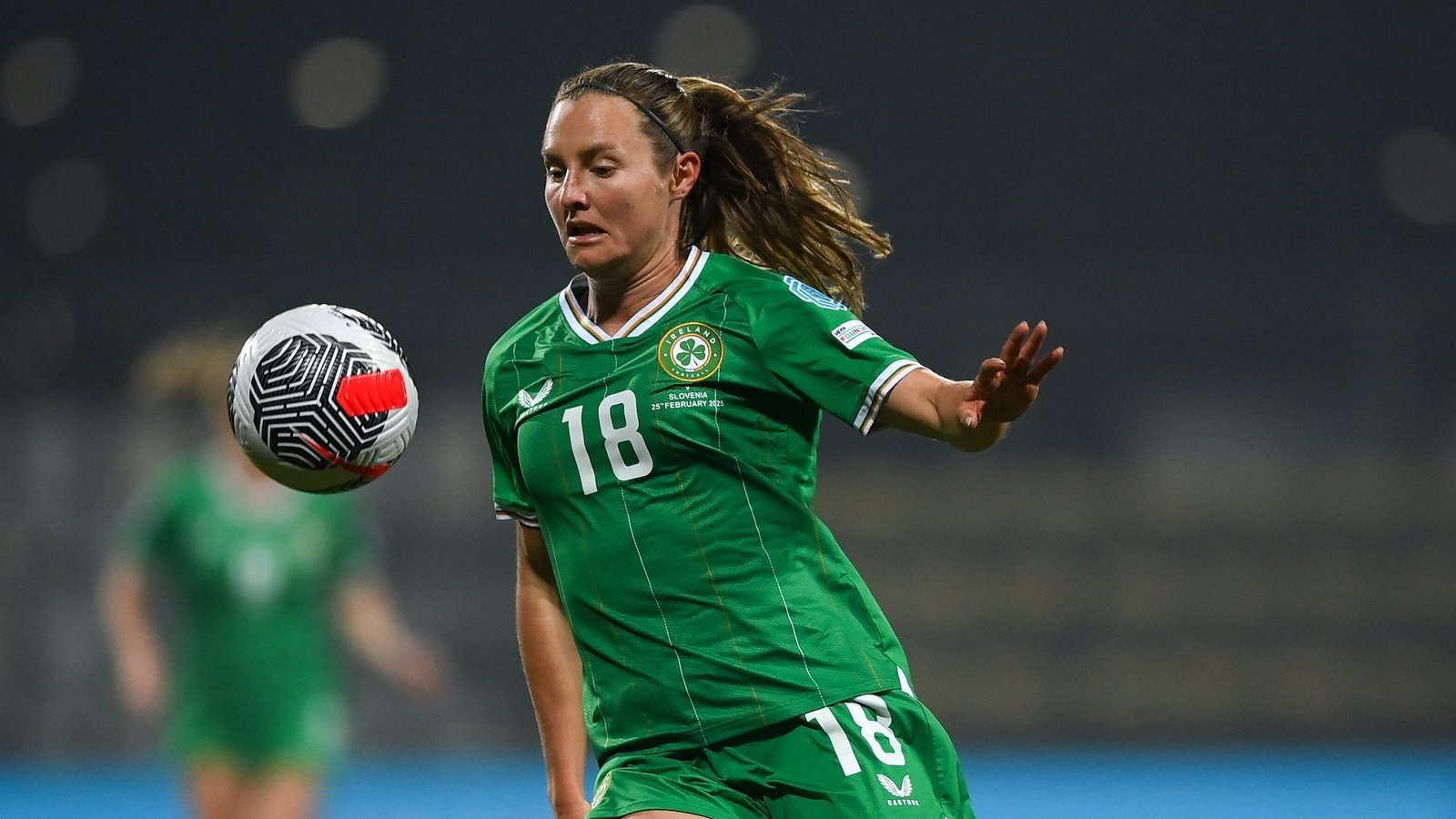‘There’s surprise, anger, frustration’: Why chess is taking off in primary schools
It’s competition day at Scoil Mhuire in Shankill, Co Dublin. Young competitors line up, their eyes locked in fierce concentration. Decked out in their school team jerseys, they size up their opponents, knowing one wrong step could change everything.But there are no goals, no tackles and no final whistle – just the quiet tap of pieces on a board as the primary school chess tournament gets under way.Niamh Rochford, a third-class student from St Joseph’s National School in Dún Laoghaire, is one of the students competing in the tournament for the first time.She started learning how to play chess this year at school but the inspiration came from home. “I was inspired when my sister and my dad started playing,” says Rochford. “I thought to myself, ‘I really want to do that’.”READ MORERochford signed up to the chess club that was run after school and here she learned how to play chess with other third-class students.Although the teaching of chess in primary schools is not new, the establishment of an organisation to promote it – Ficheall.ie – has prompted an increase in the popularity of the game in recent years.The number of students registered as playing chess with the organisation has soared from 200 in 2017 to more than 10,500 in 2024, while the number of schools taking part in chess tournaments has surged from 37 to 650 over the same period.Liam Murray, one of the founders of Ficheall.ie, says the game offers an inclusive platform on which social and emotional skills can be tangibly explored and taught in primary schools.“There’s a level playing field with chess. There’s no reading or writing involved,” says Murray. “Everyone can get on board.”Recently, Murray had a request from a school in relation to a student who had limited mobility and would require an SNA to move the pieces during the tournament.“We said, ‘absolutely’. It’s a huge benefit for that child, but a huge benefit for every child who saw that as well,” says Murray.“When we say, ‘level playing field’, we’re talking about a level playing field across education. Everyone comes to the board as an equal.”Rochford agrees that chess is a game that all students can play at school.“Everyone can play chess,” says Rochford. “They might lose, but they have to know that that’s okay and they’ll get better because, in chess, losing is how you learn.”Eoin Quane has been teaching chess for three years at Scoil Muire in Shankill and says its appeal lies in its accessibility.“I think it’s great for all different types of students, sporty students and students who are big into academia; it makes everyone feel so included.”Quane believes the game’s growing popularity is because of its universal appeal.“It’s open to anyone, students of different abilities who might not be very sporty and to different nationalities,” says Quane. “Gaelic football is an Irish sport, but chess is worldwide.”When Murray conducted research in his school about the advantages of playing chess with primary schoolchildren, he was expecting numeracy to be the area that benefited most.While maths and problem-solving skills are developed through the playing of chess, it was the impact that chess had on the development of social and emotional skills that really stood out.“The amount of emotion that goes on around a chessboard,” says Murray. “There is surprise, anger and frustration, and you can actually develop the education around those feelings when you have those feelings in a classroom, rather doing a standard SPHE lesson, which is based on a worksheet.”Dev Awasthi, a pupil at St Joseph’s National School in Dún Laoghaire, deep in thought during a chess game. Photograph: Nick BradshawMurray and those at Ficheall.ie have developed at set of 10 lessons that align with the Social Personal Health Education (SPHE) curriculum.Teachers can also enrol in a summer course that familiarises them with how to teach both the game and these lessons in school.“Even in terms of the primary curriculum framework, its principles are really aligned to what chess is and what chess does in a school. It’s more than just the board game,” says Murray.A report published by the Universidad de La Laguna about the benefits of playing chess found that chess not only improves cognitive capacities, it also influences socio-personal development and moulds the “coping and problem-solving capacity in the children and adolescents who play chess”.Murray says the face-to-face aspect of chess boosts the development of social skills, in particular, and can be of real benefit to those who have previously struggled with social interactions, especially at lunchtime.During the pandemic Ficheall moved the tournaments online but they weren’t as popular as the face-to-face ones.“My own theory is that chess gives you direct face time with someone and that’s what the children love,” says Murray. “They love making a move, looking up and seeing what your reaction is. They were exploring the impact of action to emotion, which you don’t get with online chess.”Murray says that online chess appeals to avid players but that many children are playing because it gives them the opportunity to play with different children in their school.It’s the opportunity to learn from others while playing in-person chess that appeals to Rochford.“I can see other people play and how they try to move pieces, and their tactics,” she says.Rochford also says participating in the tournament helped her learn more about chess.“I liked how I could meet new people, and they could show me some moves that I never knew.”Murray introduced chess during lunchtime at his school, especially for children who found the yard a struggle.“We were able to use chess as a medium to help understand winning and losing,” says Murray. “Chess was a ready-made social platform. We can just play, but talk naturally comes about, so it gave them a way in.”Quane also offers chess at lunchtime on a Tuesday in Scoil Mhuire.“It’s open to anyone,” says Quane, “students might want a break from the yard, and they can play for 10 minutes or a half an hour. They can play with their friends or with children from other classes.”Cian Cummins and Daniel Morrissey are two of the thousands of players developing chess skills in Irish primary schools. Photograph: Nick BradshawMurray says that when children from different classes play each other it helps create a sense of interconnectedness in the school. “It’s a social space in which you meet people you wouldn’t ordinarily meet. That’s what chess is in a school,” says Murray. “It impacts school culture. Generally, if a school is doing chess and promoting chess as a social structure, there’s a really good feel in that school, it’s an extension of what they’re doing.”That sense of community is reinforced when the students don their school jersey during tournaments. “We could show all the schools that we were St Joseph’s,” says Rochford, “and I feel proud to wear the jersey and proud of my school.”For parents who want to introduce chess at home Murray says the lessons are available on YouTube and can offer more than just an opportunity to develop skills in a new game. “One or two parents mentioned how, certainly with sixth-class boys, chess was a way in to chatting. It was a way of playing a bit of chess and checking in without having to go too deep into things,” says Murray.Quane says that they are also hoping to involve the parents and grandparents in chess activities at Scoil Mhuire. “It’s great to see that it’s starting to go home to the home environment,” says Quane. “The next step would be to involve the parents more, and if they could come in and we could do a student-vs-parent games.”Third-class pupils with teachers Padraic Fay and Ciara Gorry. Photograph: Nick Bradshaw








